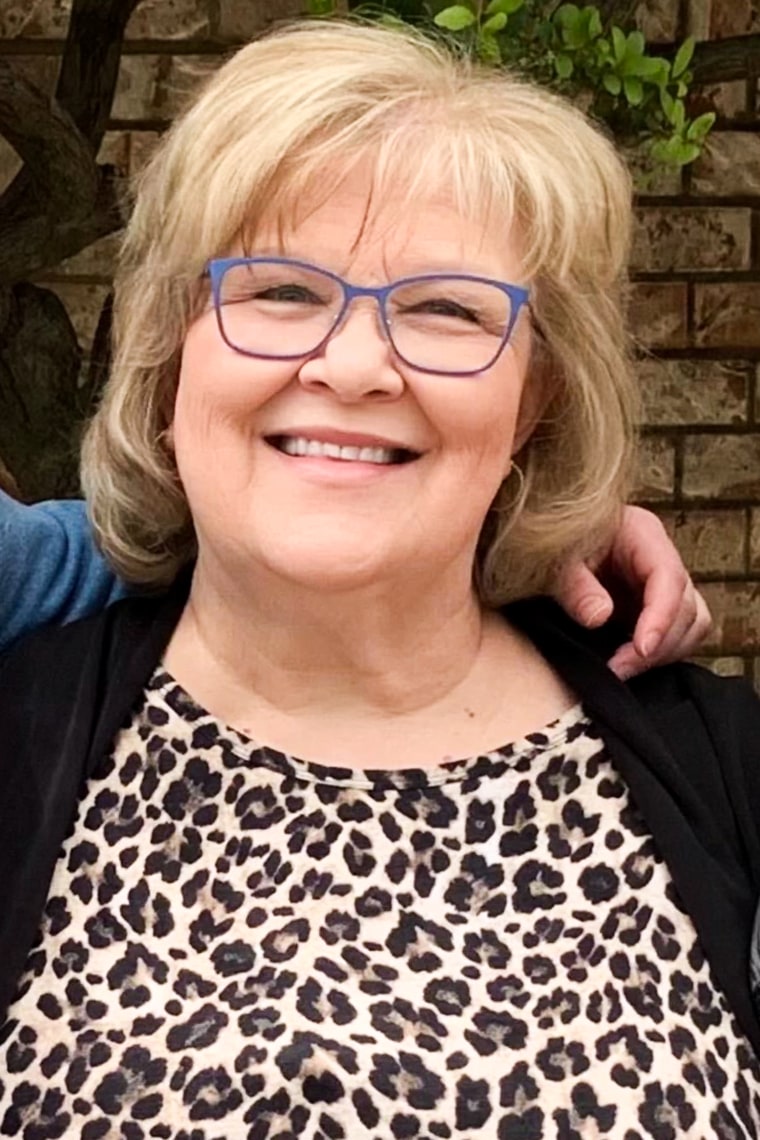Dr. Laure DeMattia, a bariatric medicine specialist in Norman, Oklahoma, feels the frustration of her patients as they struggle to lose weight.
Almost all of her patients at a weight-loss clinic in the suburbs south of Oklahoma City could be helped by the new class of medications such as Ozempic and Wegovy — if they could afford them.
“My patients have already done Weight Watchers, Nutrisystem. They’ve done the high protein, low carb,” she said. “They’ve already done as much as they thought was physically possible to alter their diet and exercise.”
What many of them haven’t done is take a monthly injection of semaglutide or tirzepatide. DeMattia can give them a prescription for Wegovy or Zepbound, but that’s just the beginning. They then face a complicated, often frustrating battle to pay for the expensive medications.
“Our Medicare and Medicaid populations are some of the most at-risk and they do not have access to any anti-obesity medication,” she said.

About half of the adults in the United States have obesity or are severely obese, a crisis that means more people are at risk of heart disease, diabetes or some types of cancer.
According to new data, there are stark geographic and racial disparities in who is able to get their hands on semaglutide, the active ingredient in Ozempic and Wegovy.
An estimated 85% of semaglutide prescriptions were dispensed to white people across the country, results from an analysis of more than 4 million prescriptions written nationwide for the drug in 2023 showed. According to the health care analytics company PurpleLab, Black adults, who have significantly higher rates of diabetes and obesity, received around 12% of the prescriptions.
In the seven years since semaglutide was approved for diabetes, the new class of weight-loss drugs such as semaglutide and tirzepatide are increasingly hailed as a revolution in the treatment for obesity. Celebrities like billionaire Oprah Winfrey show off their trimmer bodies as they tout the drugs.
Yet, in 2023, only 1% of the U.S. population with government or private insurance had a prescription filled for semaglutide, the most popular of the weight-loss medications, according to the PurpleLab analysis.
So much for the revolution.
The high cost of the drugs makes them almost unattainable for many of the people who need them the most. Insurance companies typically refuse to reimburse the around $1,000 monthly cost of the injections or, when they do pay, put up high barriers to authorizing payments.
“A lot of what we do with obesity management is more for, I wouldn’t say the elites, but people who actually have better insurance and can get it covered,” said Dr. Peminda Cabandugama, an endocrinologist at the Cleveland Clinic.
The data didn’t include other weight loss medications, including Eli Lilly’s Zepbound, which has only been available since December, or Mounjaro, the diabetes version of the drug tirzepatide.
Oklahoma — with an adult obesity rate of 40%, the third highest in the U.S. — doesn’t even crack the top 25 states for semaglutide prescriptions.
Dr. Ryan Morgan, an obesity medicine physician at Vitalis Metabolic Health in Oklahoma, said there is some “weight based discrimination” where health providers don’t see obesity as a chronic disease. He also noted that many insurers don’t cover the cost of the medication because it’s too expensive, something he often has to tell his patients.
“I tell them, I could send it and it’s probably 99.9% going to get denied,” he said. “It feels like my tools are being taken away from me.”
Unlike Oklahoma, West Virginia has comparatively high prescription rates. The state has the highest adult obesity rate in the nation but ranks in second spot for semaglutide prescriptions, according to PurpleLab. The relatively high rate of prescriptions could be due to West Virginia covering the cost of the medications for its state employees.
In February, that ended.
Dr. Laura Davisson, director of West Virginia University’s medical weight management program, said it’s a challenge to help her patients pay for the drugs.
“We really have it within our power now to potentially turn around the health of this country,” but patients being unable to meet the expense, “means we’re going to increase the health care disparities.”
Why not invest on "the front end"?
Liz Shumate, a 41-year-old mental health therapist from Oklahoma City, Oklahoma, has a family history of heart disease. She wants to lose about 20 pounds to help reduce her risk of health complications. Several diets and other lifestyle changes haven’t helped.

Shumate, who is Black, tried to get Wegovy or Zepbound, but the insurance she gets through her job denied her the coverage and she’s unable to afford the $1,000 monthly prescription.
She acknowledged that the situation is likely even more demoralizing for people with lower incomes.
“When we think about people being able to manage their weight in a healthy way that leads to better outcomes long terms, it just doesn’t make sense,” she said. “There’s an explanation for not covering it through insurance, but then we’ll cover open-heart surgery, or we’ll cover other lifesaving measures. Why don’t we invest that money on the front end?”
Susan Beam, 67, of Norman, Oklahoma, has high blood pressure and rheumatoid arthritis, which she says has been exacerbated by her excess weight.

She wants to be prescribed a weight loss medication, which her doctors say could help alleviate her conditions. However, Medicare denies coverage, leaving her unable to afford the high out-of-pocket cost of the drugs.
“It’s very frustrating,” said Beam, who has struggled with her weight for years. “It’s only accessible to certain people who realistically can afford to pay for it if their insurance doesn’t cover it. That certainly feels unfair.”
Will Medicare ever cover weight loss drugs?
Cabandugama, of the Cleveland Clinic, said that insurance companies often refuse to cover the cost of weight loss medications because obesity is still seen as a cosmetic issue, instead of a chronic disease.
Another barrier, he added, is a 2003 law that prohibits Medicare from covering weight loss drugs, cutting off a huge group of potential patients. Private insurance companies often take Medicare’s lead in deciding what to pay for.
“The problem has always been access,” Cabandugama said.
To be sure, more insurers could be persuaded to cover the drugs after the Food and Drug Administration expanded the approval of Wegovy to reduce heart attack and stroke risk. Drugmakers have been racing to prove that their drugs provide health benefits beyond weight loss and diabetes.
A spokesperson for the Centers for Medicare & Medicaid Services said in a statement that the agency is currently reviewing the FDA’s approval to expand the use of Wegovy to reduce heart attack and stroke risk.
A growing number of employers are considering coverage of weight loss drugs in the future, said a spokesperson for America’s Health Insurance Plans, or AHIP, a trade group for the insurance industry. The group cited a report from 2023 that found 41% of employers cover weight loss medications.
“However, the exorbitant and unsustainable prices charged by manufacturers — more than $1,000 per month — and lack of competition pose continued barriers to access,” the spokesperson said.
If there's no insurance coverage, it's over
Dr. Drake Bellanger, an obesity medicine specialist at the Louisiana Center for Bariatrics in Baton Rouge, worries about losing patients because of the cost of the drugs.
“You’ll see a fairly high no-show rate,” he said. “Patients kind of just not showing up. And those are the patients usually, if I look back in their chart, these medications were denied and we had to go to the more the older medications that they may have been on before and you could tell they basically just gave up.”
Davisson, of West Virginia University, said the patients she sees have had a lifetime of weight problems and have tried other options.
“If there’s no insurance coverage, then generally the conversation is over,” she said. “That’s just really, really disappointing.”


